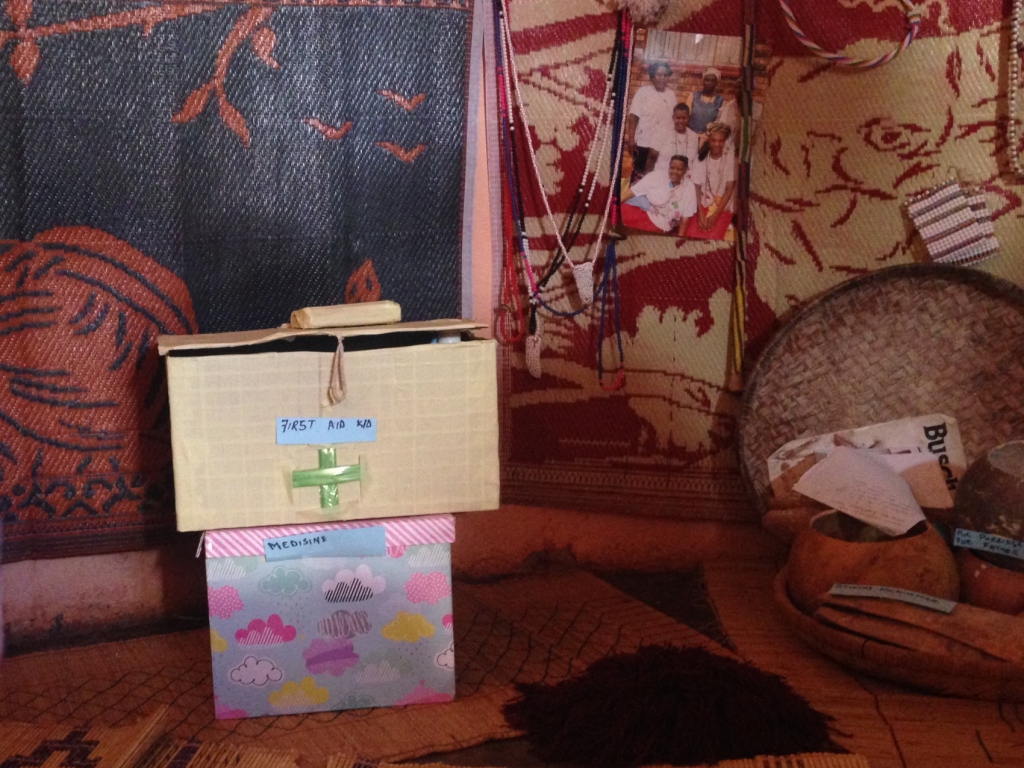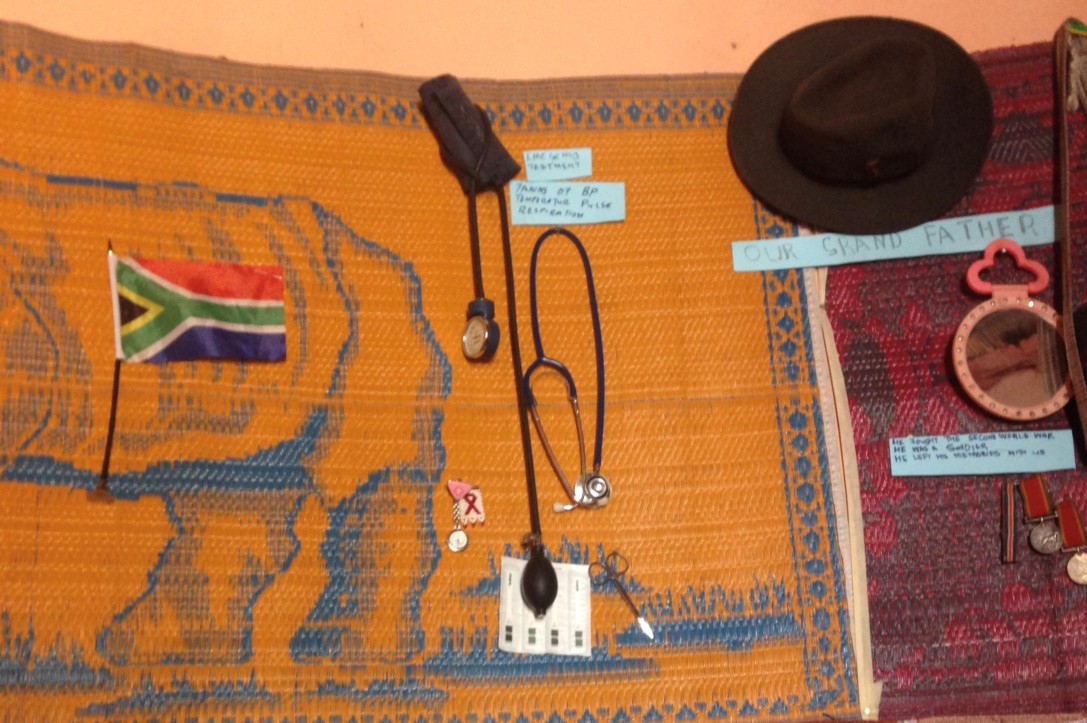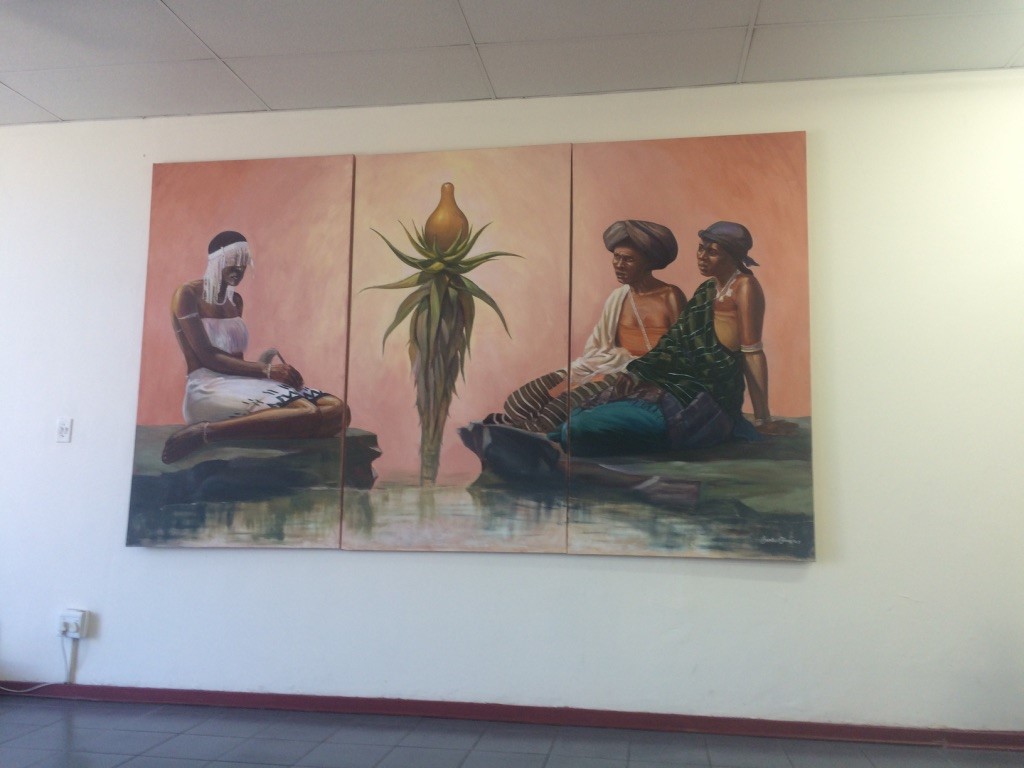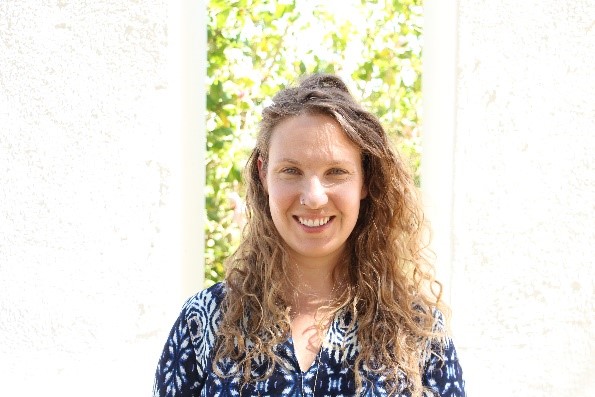Biomedical Beliefs and Practices Amongst Traditional Health Practitioners

Lesley Gittings (PhD Student, UCT)
Editorial Note: Lesley Gittings is a PhD student and SASH Fellow in the Division. Her work is on the experiences of adolescent boys from the Eastern Cape Province who are living with HIV. Part of her project focuses on the ways these boys seek help from both biomedical and traditional healers. In this piece, Lesley considers the ways that these healers themselves sometimes also combine knowledge and practices from both traditions.
People seek wellness and healing in different ways. We choose services and products based on what we believe, how we understand our ailments and what is available to us. Many people seek both biomedical and traditional health services, and there is strong evidence that this is common in South Africa (1,2). ‘Medical pluralism’ is a term used to describe the use of both biomedical and traditional and/or faith-based health care. The potential benefits of medical pluralism include psychosocial and spiritual support, alongside more holistic, culturally appropriate care (3,4) but there are also risks. These risks include toxicity, interactions between biomedicines and traditional medicines, delays in accessing urgent medical care, and dehydration from the use of purgatives (5,6).
Some THPs also include components of biomedicine in their own practice (7), but we know much less about medical pluralism among these healers than we do about their clients. This article examines how some of the traditional health practitioners I have worked with in my own research have engaged with biomedicine, and the various beliefs and paradigms from which they operate.
The Devil's Medicine
In 2017, I visited my friend Thando in the rural Eastern Cape where she was collecting data for her Masters research in pharmacology. At the time, I was also collecting data in the same province for my doctoral research on medical pluralism amongst adolescent boys living with HIV. Thando and I are both in the process of initiation (ukuthwasa) as traditional health practitioners—an experience which inevitably shapes our research interests and methods. Her research draws on her background in biomedical science as well her training into traditional health practices and focuses on indigenous knowledge and practice.
During my visit with Thando, we went to meet one of her key informants, also a traditional healer. Upon entering her home, a bee persistently buzzed around our heads, which our host interpreted as an auspicious sign. Within what felt like minutes, she had organised an intlombe, a dance with traditional healers for the ancestors. A drummer and drum arrived, as well as food, beer and other traditional healers, family and community members.
Traditional health practices are part of a larger traditional cosmology and indigenous belief system that has also been marginalised and stigmatised
As the drumming got underway and the dancing grew more vigorous, Thando had an asthma attack from the exertion. She crossed the floor and took her inhaler out of her purse. Immediately, an older male traditional healer, Tata Zweli (a pseudonym) snatched it out of her hand and refused to give it back. When she insisted she needed it, he scorned it as ‘Devil’s medicine’, but did not offer an alternative solution to help her breathe.
The power dynamics in this scene at the intlombe are complicated. Tata Zweli held certain privileges as an older man, a relative to the host, and a practicing igqirha (a type of traditional healer). However, Thando was a well-educated, middle-class ‘outsider’ to the area and held a kind of social power that Tata Zweli may have perceived as threatening. In addition to his discomfort with the biomedical character of asthma medication, he may have also been asserting his authority by denying Thando the medicine she needed. Throughout the intlombe, in fact, he frequently demanded that Thando serve him food and drink, perhaps for this same reason.
This is a story of a traditional healer’s rejection of biomedicine, one that may confirm many people’s assumptions that traditional and biomedical practices are incompatible, or even in active conflict. Despite being an uncomfortable and distressing experience for Thando, though, when I asked her if I could write about this event, she asked me to be compassionate in its telling and set it within a broader context. She said the history of the traditional health sector in South Africa is important to keep in mind when trying to understand why someone like Tata Zweli would be deeply resistant to the inhaler she needed to breathe.
For example, when their community received a hospital a few years ago, many traditional healers lost their livelihoods. This is part of South Africa’s long history of marginalising the traditional health sector, a history that includes the criminalisation of THPs under the 1957 Witchcraft Suppression Act, and a widespread assumption among policymakers and health workers that indigenous knowledge is secondary to that of Western knowledge (3,8).
Traditional health practices are part of a larger cosmology and indigenous belief system that have also been marginalised and stigmatised. In her poetry, Nontsizi Mgqwetho—who has been referred to as ‘the first and only female poet to produce a substantial (known) body of work in isiXhosa’—addresses some of this history, including the painful ways that traditional beliefs and healing have been denigrated by colonial settlers, missionaries and Christian organisations. She published in the Umteteli wa Bantu newspaper frequently in the 1920s. The excerpt below is from a poem published on 21 March, 1925 (9,10). In the English translation, amagqirha has been translated as ‘diviners’:
Masiko sangena kumzi wasemzini
Sachasa neenkosi seza emlungwini
Sachitha nemfuyo konke kwaphelela
Tu – nto! Isasele siphokophalala.
Sathi namagqirha angabahedeni
Sisenza uThixo ngoko umhedeni
Yena owadala zonke ezi zinto…
Sathi namagqirha angabahedeni
Kodwa wonke umzi usaya eweni…
*** (translation)
We embraced the customs of strangers;
We shunned our chiefs, made after the whites,
We sold our stock for next to nothing:
All gone! We haven’t a bean!
We dismissed our diviners as heathens
Thus making a heathen of God Himself,
For He created all these things…
We dismissed our diviners as heathens
But the country’s pitching over a cliff…
***
I have provided some of this broader context in order to show why traditional health practitioners like Tata Zweli might be resistant to biomedicine. It should not be surprising that for some THPs, biomedicine is perceived as part of a system that has damaged indigenous beliefs, hurt local communities and denigrated their ancestral ways. Tata Zweli would likely experience this hurt as an ongoing reality, due to both recent events—such as the closing hospital and prosecution of THPs for entering into the nearby nature reserve for ceremony and to collect medicinal plants—as well as the ancestral trauma that he may carry and embody. In light of the historical and on-going marginalisation of THPs, this story suggests that a more compassionate understanding of this context may play an important role in bridging biomedical and traditional health sectors.
Phalaza and Pluralism
There are traditional health practitioners, however, who actively include components of biomedicine in their work. This next story is a personal one about receiving traditional care that incorporated both biomedical and traditional elements in response to my unique needs.
Last year I had a high-risk HIV exposure. I immediately started a month-long regimen of antiretroviral therapy (ART) called post-exposure prophylaxis (PEP), which has proven effective at stopping people from becoming HIV positive after this kind of exposure. My doctor told me it was important to take this medication consistently for it to work properly. I had to take one pill daily, and another pill twice daily at 12-hour intervals.
When this happened, I immediately contacted my gobela (spiritual teacher/trainer). In the belief system I am training in, the same experience that put me at risk of contracting HIV also put me in danger in a more holistic sense. That is, the integrity of my being—encompassing my physical body but also other components of my ‘self’ including the spiritual, emotional and psychological—had been compromised. In this system, disease is understood not just on a physical level, but also in relation to spirituality and kinship bonds between those living and those deceased. In order to be well—and not just avoid HIV infection—my gobela had determined that I would need to cleanse. She asked me ‘When last did you phalaza (purge)’?
Drinking purgatories to induce vomiting is a common traditional practice, understood as a form of physical, emotional and spiritual cleansing and purifying. I felt conflicted. I didn’t want to vomit up my ART medication and risk lowering its effectiveness. At the same time, I wanted to respect and honour the system of traditional medicines and practices of which I am becoming a part.
I discussed my concerns with her. She responded by thanking me for reminding her about the medication I was taking, and said that this would help guide what we were going to do. Instead of purging, she prepared a cleanse for me which involved steaming. This practice involves boiling traditional medicines in water, and sitting in, and inhaling the steam, also understood as a way to cleanse and purify.
By providing me with traditional health care in a way that responded to my needs, she demonstrated an understanding of, and a belief in, the biomedicine I was taking. She also supported my spiritual, emotional and psychological needs for healing through the medicines and practices that she included in my traditional treatment. Like many other traditional health practitioners, she believes in the efficacy of certain biomedicines. At the same time, this belief does not compromise her commitment to traditional medicines and practices to support wellbeing. She adapted a traditional practice to accommodate my biomedical needs, an accommodation that she understood as important for supporting all aspects of my wellbeing.
Even the ICU Manager Here Trained As a Sangoma!
As part of my PhD research, I also interviewed biomedical practitioners in the Eastern Cape. In an interview with an ARV unit manager at a large hospital, I asked about the role of traditional health services within the biomedical system. She first spoke about her thoughts in general about the benefits and drawbacks of traditional health services and described a nursing student she knew who was called by the ancestors to become a healer. Eventually, however, she disclosed that she herself had initiated as a traditional health practitioner:
"Even with this thing of ukuthwasa, it comes to people in different ways…I was not physically sick, but I don’t know what was happening psychologically. I’d get up at night and hear voices like people were calling me, I wanted to get out of the house. I was a sleepwalker… Also the legs, they were so swollen, I had funny things. When I got in there for training [as a traditional healer], it all stopped. I was healed...I’ve seen others who have done both - both nurses [nursing training] and thawasa [THP training]. Even the ICU manager here trained as a sangoma."
At the end of our interview, she marched me to the lunchroom to introduce me to this ICU sister-in-charge. These two hospital unit managers are not the only biomedical practitioners I’ve met who are also traditional health practitioners. When in Limpopo for a ceremony in 2016, a traditional healer showed me into her indumba, or ancestral/consultation space. As a trained nurse, she had a stethoscope and blood pressure machine hanging on the wall next to her grandfather’s hat, mirror and medals for fighting in the Second World War (see photo below). She had labelled these, alongside many other items, to teach visitors about her practice and her family history/ancestors.

Similarly, upon moving to the Eastern Cape, I arranged an appointment with the doctor covered by my medical insurance. When I walked into his office, there were paintings of traditional ceremonies and medicines on the walls. When I asked him about it, he narrated his experience as a young doctor who denied his calling to be a traditional health until a traumatic experience put him in the ICU. He also underwent the process of initiation and was healed, and then continued practicing as a medical doctor. He had the murals painted based on the visions he had seen in dreams (see consultation room picture below).

All of the practitioners in the stories above first trained within biomedicine, and then as traditional health practitioners. In speaking to both medically and non-medically trained THPs about this phenomenon, they commonly understood these nurses and doctors as having a calling from their ancestors to work as healers. They answered this calling through training as both as biomedical and traditional practitioners.
A Way Forward for Biomedicine and Traditional Healing?
Clearly, traditional health practitioners are far from being a homogenous group. These stories try to capture some of the complexity, creativity and diversity in the ways THPs engage with biomedical practices and beliefs. Traditional and biomedical health practices are often seen to be at odds, with THPs being perceived as being resistant to, or mistrustful of biomedicine. There is a strong argument, however, that the simplistic division of health beliefs and practices into ‘traditional’ and ‘biomedical’ paradigms is inappropriate and limiting (9), and that a critical questioning of this supposed dichotomy can produce new insights and different ‘ecologies of knowledge’ (9,10). Many people have belief systems which encompass both traditional and biomedical practices, as demonstrated by high rates of medical pluralism in South Africa. Similarly, it is possible for healers to simultaneously hold traditional and biomedical beliefs and practices without seeing them at odds with one another. Practitioners who actively engage in both spheres are likely well placed to provide advice and input into policies and programmes aimed at improving the relationships between the two.
Developing more respectful, informed and reciprocal engagements between traditional and biomedical health sectors is an important goal. A longstanding and robust evidence base suggests that combining traditional and biomedical healing can provide patients with more effective and holistic healthcare (3). These boundaries between these healing paradigms are already being traversed by many biomedical and traditional practitioners. These practitioners provide a strong foundation for further learning and collaboration between these paradigms.
For those working to improve South Africa’s health system, it is crucial to gain insight into the different ways that traditional health practitioners make sense of, and practice within the current biomedical paradigm. Similarly, initiatives to better understand and address how biomedical practitioners engage with the traditional health sector are crucial to supporting holistic wellbeing and addressing power inequalities between these sectors (3,11). Efforts like this will require respect, reciprocity and a good faith effort to understand the beliefs, practices and experiences of traditional health practitioners and their clients (3,4,12,13). As suggested by my friend Thando, it is important to consider not only the presumably ‘cultural’ differences at work, but also the role of historical and ongoing power disparities and oppressions. Keeping these histories in mind helps us to better understand why traditional health practitioners like Tata Zweli might be resistant to biomedicine. Approaching traditional health practitioners with compassion and an acknowledgement of the ways they have been marginalised and denigrated is crucial in interrupting patterns of resistance and conflict and moving towards more productive, respectful and health-affirming engagement.
References:
1. Moshabela M, Pronyk P, Williams N, Schneider H, Lurie M. Patterns and implications of medical pluralism among HIV/AIDS patients in rural South Africa. AIDS Behav. 2011;15(4):842–52.
2. Puckree T, Mkhize M, Mgobhozi Z, Lin J. African traditional healers: what health care professionals need to know. Int J Rehabil Res. 2002;25(4):247–51.
3. Moshabela M, Zuma T, Gaede B. Bridging the gap between biomedical and traditional health practitioners in South Africa 8. 2016;83–92.
4. Wreford J, Esser M. Involving African traditional health practitioners in HIV/ AIDS interventions. S Afr Med J. 2008;98(5):374.
5. Nxumalo N, Alaba O, Harris B, Chersich M, Goudge J. Utilization of traditional healers in South Africa and costs to patients: findings from a national household survey. J Public Health Policy [Internet]. 2011;32 Suppl 1(S1):S124-36. Available from: http://www.ncbi.nlm.nih.gov/pubmed/21730986
6. Pantelic M, Cluver L, Boyes M, Toska E, Kuo C, Moshabela M, et al. Medical Pluralism Predicts Non-ART Use among Parents in Need of ART: A Community Survey in KwaZulu-Natal, South Africa. AIDS Behav. 2015;19:137–44.
7. de Roubaix M. The decolonialisation of medicine in South Africa: Threat or opportunity? South African Med J. 2016;106(2):159–61.
8. Wreford J. Shaming and blaming: medical myths, traditional health practitioners and HIV and AIDS in South Africa. Cape Town; 2008.
9. Mgqwetho N. Who said there is no need of divination? (English title). Umteteli wa Bantu. Eastern Cape; 1925 Mar 21.
10. Opland J. Xhosa Poets and Poetry. Cape Town: David Philip Publishers; 1998. p. 216-7.
11. Green L. Beyond South Africa’s ‘indigenous knowledge – science’ wars. S Afr J Sci. 2012;108:1–10.
12. Colvin CJ. Evidence and AIDS activism: HIV scale-up and the contemporary politics of knowledge in global public health. Glob Public Health. 2014;9(1–2):57–72.
13. Wreford J. Research Negotiationg Relationships between biomedicine and Sangoma: Fundemental misunderstandings, avoidable mistakes. Centre for Social Science Research; 2005.
14. Mokgobi MG. Understanding traditional African healing. African J Phys Heal Educ Recreat Danc. 2014;20(Suppl 2):24–34.
15. Leclerc-Madlala S, Green E, Hallin M. Traditional healers and the “Fast-Track” HIV response: is success possible without them? African J AIDS Res. 2016;15(2):185–93.
Author Biography

Email: Lesley.Gittings@gmail.com